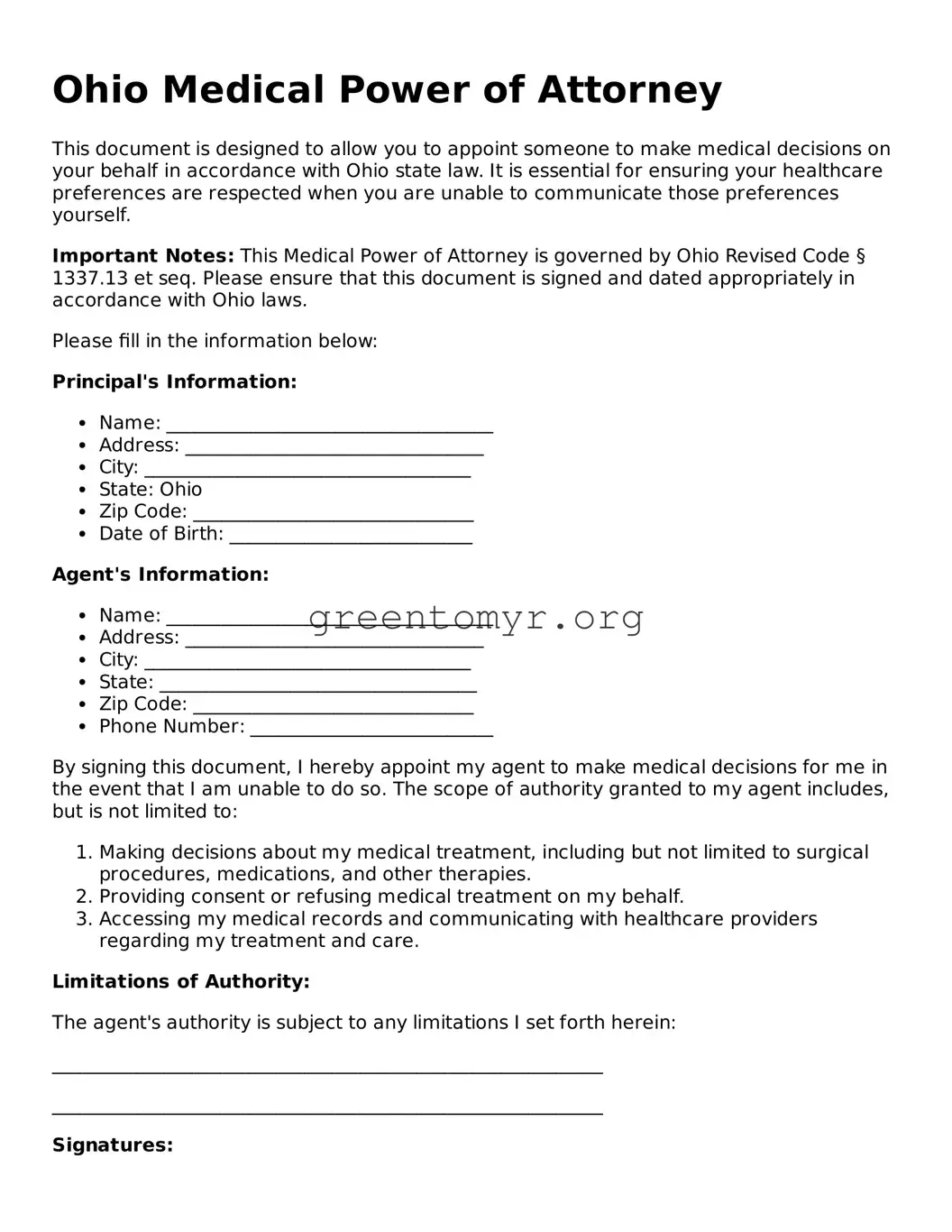Ohio Medical Power of Attorney
This document is designed to allow you to appoint someone to make medical decisions on your behalf in accordance with Ohio state law. It is essential for ensuring your healthcare preferences are respected when you are unable to communicate those preferences yourself.
Important Notes: This Medical Power of Attorney is governed by Ohio Revised Code § 1337.13 et seq. Please ensure that this document is signed and dated appropriately in accordance with Ohio laws.
Please fill in the information below:
Principal's Information:
- Name: ___________________________________
- Address: ________________________________
- City: ___________________________________
- State: Ohio
- Zip Code: ______________________________
- Date of Birth: __________________________
Agent's Information:
- Name: ___________________________________
- Address: ________________________________
- City: ___________________________________
- State: __________________________________
- Zip Code: ______________________________
- Phone Number: __________________________
By signing this document, I hereby appoint my agent to make medical decisions for me in the event that I am unable to do so. The scope of authority granted to my agent includes, but is not limited to:
- Making decisions about my medical treatment, including but not limited to surgical procedures, medications, and other therapies.
- Providing consent or refusing medical treatment on my behalf.
- Accessing my medical records and communicating with healthcare providers regarding my treatment and care.
Limitations of Authority:
The agent's authority is subject to any limitations I set forth herein:
___________________________________________________________
___________________________________________________________
Signatures:
This Medical Power of Attorney shall be effective immediately, unless otherwise indicated below:
Effective Date: ________________________________
Signature of Principal: ________________________________
Witness Signature: ________________________________
Witness Signature: ________________________________
Notary Acknowledgment (if desired):
State of Ohio, County of ________________
Subscribed and sworn to before me this ___ day of ______________, 20__.
Notary Public: ________________________________
My Notary Commission Expires: ______________________
